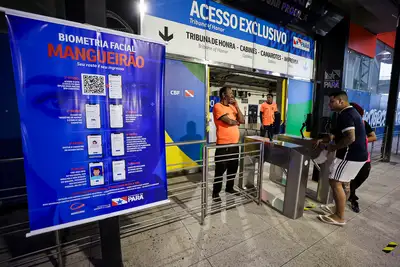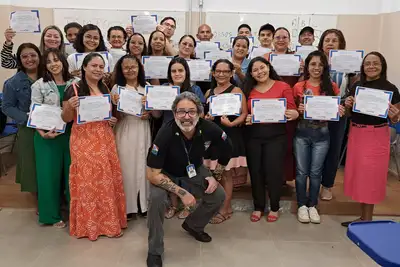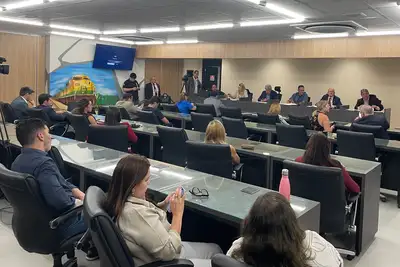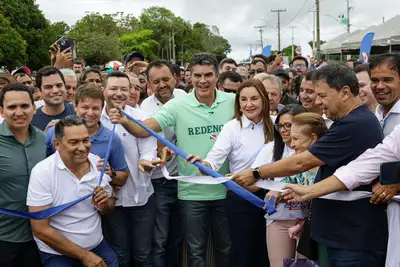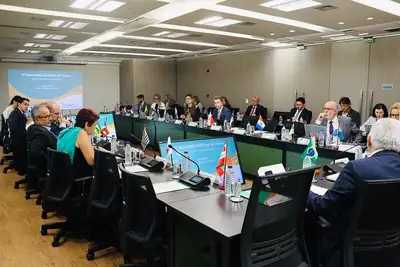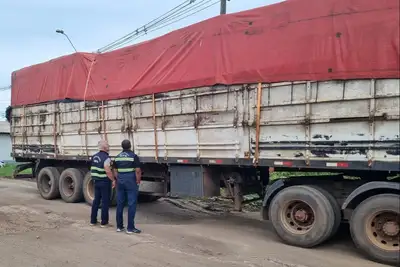Focusing on climate resilience, Cosanpa presents Prodesan Pará at the Estação Amazônia Sempre
Social actions, innovation, and international financing structure the project that benefits over 1 million people

The Pará Sanitation Company (Cosanpa) presented, this Monday (17), the advances of Prodesan Pará during the event "Building Amazonian cities resilient to climate change: alliance in action," promoted by Fonplata – Development Bank, at the Estação Amazônia Sempre, at the Goeldi Museum. Engineer Tatiana Costa detailed how the project, financed by the IDB and the State Government with 125 million dollars, strengthens sanitation in Belém, Ananindeua, and Marituba and expands dialogue with communities directly impacted by the works. The initiative is part of the parallel programming that takes place in Belém in the second week of COP 30, reinforcing the presence of sanitation in climate discussions.
According to Tatiana, Prodesan Pará raises the standard of planning and operation of Cosanpa by incorporating active listening methodologies in urban and riverside territories. She highlighted the work in the Maria Petrolínea community, in the Curió-Utinga neighborhood in Belém, where about 40 families — approximately 200 people — live along the riverbanks. The community has been incorporated into Prodesan Cidadania, an initiative that encourages social participation and the joint construction of solutions appropriate to the territory.
“Without dialogue and engagement, it is not possible to identify the best solution. These families live along the river that will receive treated sewage from Belém, and this requires social responsibility, environmental responsibility, and commitment to climate justice,” she stated.
Cosanpa's presentation was one of the central points of discussions about the urgency of financing lines with differentiated conditions, essential for Amazonian cities to implement projects capable of facing the impacts of climate change. The mayor of Belém, Igor Normando, who opened the event, emphasized that COP 30 is a strategic opportunity to place sanitation at the center of the global agenda. “Sanitation is directly linked to adaptation, health, and climate justice. We need to leave this moment with solid projects and structured partnerships,” he stated.
The Brazilian Association of State Sanitation Companies (Aesbe) also highlighted this need by presenting the document “Guidelines for Addressing Climate Change,” part of the Universalizar series. The material gathers 60 recommendations developed over a year by state companies and guides public policies aimed at water resilience, governance, and climate financing.
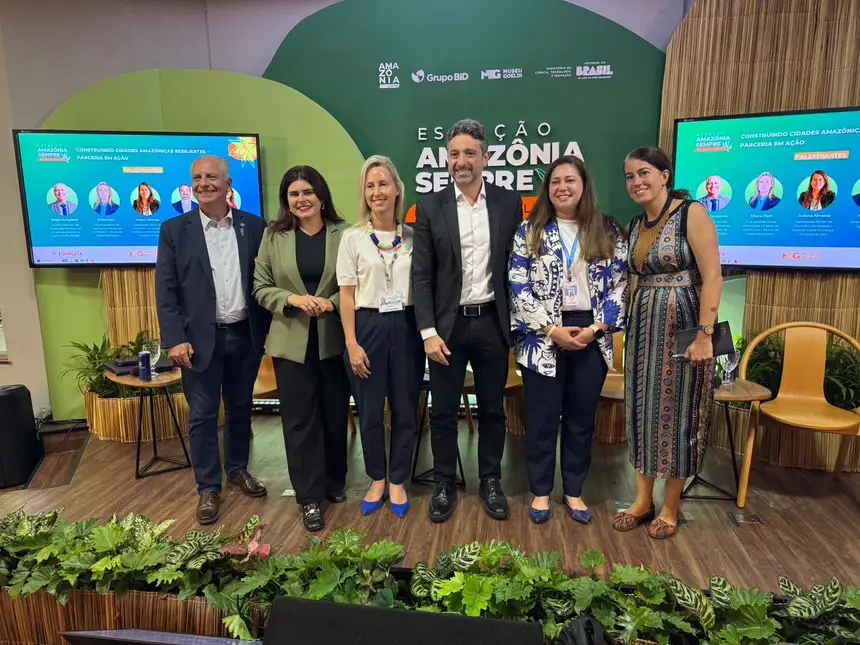
The debate also included the participation of the company Águas do Pará, represented by president André Facó, who highlighted the importance of cooperation between government, concessionaires, and development banks to accelerate universalization. “There is no city adapted to climate change without resolved sanitation. It is the foundational infrastructure of resilience. Pará is ahead by combining public planning, private fundraising capacity, and social protection mechanisms, such as the social tariff, ensuring climate justice for the most vulnerable,” he stated.
Representing the IDB, specialist Juliana Almeida emphasized the relevance of international investments and announced at least 1 billion reserved for adaptation and resilience initiatives, in addition to more than 5 billion dollars applied in projects in the Amazon, including Prodesan Pará.
What is Prodesan Pará?
The Pará Sanitation Development Project (Prodesan Pará) includes structural works, modernization of systems, social actions in vulnerable territories, community dialogue, and equity initiatives, such as the Gender Policy. The program aims to expand the coverage of water supply and sewage treatment, reduce losses, strengthen water resilience, and promote social inclusion in the municipalities of Belém, Ananindeua, and Marituba, benefiting over 1 million people.



